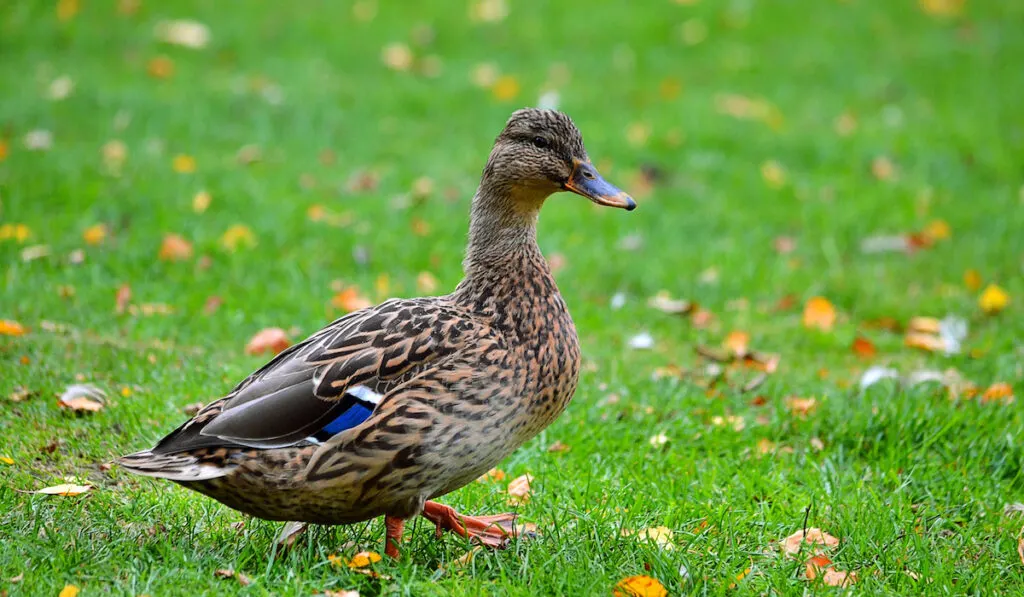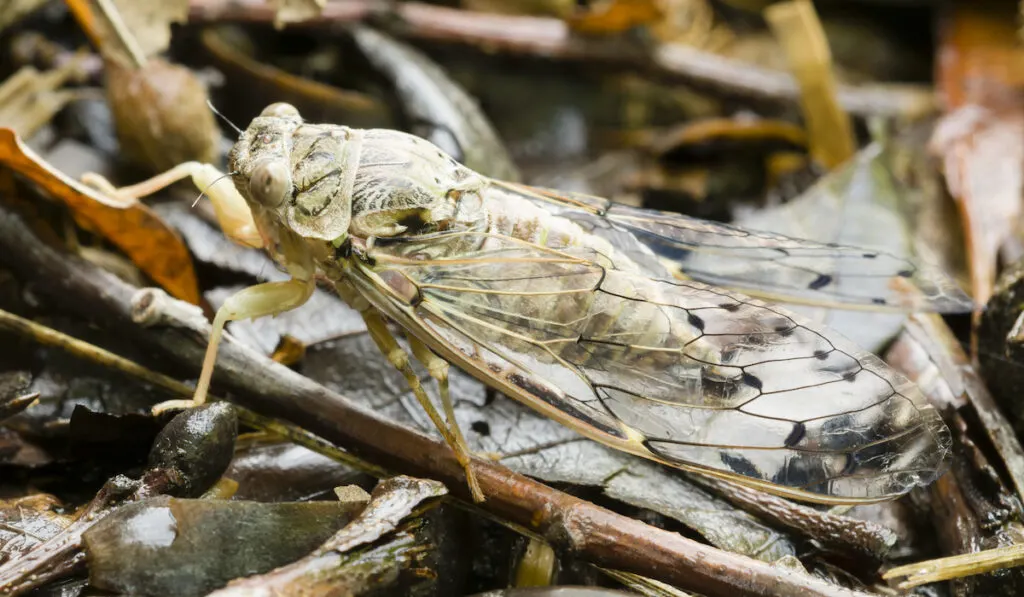The fact that ducks eat bugs is not new – the quacking waterfowl consume beetles, grasshoppers, locusts, and many other insects.
But then you think of cicadas, which are not readily available because they only show up periodically, and you wonder, can ducks eat them?
Can ducks eat cicadas?
Ducks can eat cicadas without any difficulty. Cicadas are generally non-poisonous, so they pose no threat to ducks.
Also, ducks are omnivorous. Therefore, they will have no problem digesting a cicada in the same way they digest other bugs they consume.
To satisfy your curiosity about the safety of cicadas with ducks, we discuss more on it in the rest of this article.
Table of Contents
Can Ducks Eat Cicadas?
While it is uncommon, ducks can eat cicadas in the same way they eat many other bugs. The crunchiness and the unique taste of cicadas make them a good treat for ducks.
Cicadas are broadly classified into 2 groups: annual cicadas and periodical cicadas.
The annual cicadas show up every summer, while the periodical species appear only every 13-17 years.
Going by this, cicadas are not always around. So, it is understandable if you have not seen a duck eating one before.
Will Cicadas Hurt Ducks?
Generally, cicadas are not poisonous, so they are unlikely to cause any toxicity to ducks. Besides, ducks are omnivores – their digestive system is suited for digesting animal matter like the body of a cicada.
While the statements above hold true, you should still be careful while feeding cicadas to your ducks.
For one, periodical cicadas are known to accumulate mercury. This study revealed that various forms of mercury made up almost 5% of a cicada’s body.
While ducks can tolerate mercury to an extent, it appears that mercury might adversely affect the number of eggs they lay.
Beyond affecting their egg-laying rate, there is a possibility that a duck can choke while eating a cicada. This is even more likely if the duck is trying to swallow too many cicadas at once.
While cicadas are naturally non-poisonous, they can become poisonous to ducks if they are sprayed with a high volume of pesticide. In other words, a duck may become ill or die if it eats pesticide-laden cicadas.

Can Ducks Eat Too Many Cicadas?
Ducks should not eat too many cicadas. If they consume too many cicadas at a go, they may become too full to eat their primary diet.
But beyond that, your duck may become sick and start vomiting if it eats too many cicadas at once. That is if it does not choke while gorging on them.
Cicadas are primarily proteinous, and if ducks consume too many of them over a long period, they may get angel wings. Generally, the protein in a duck’s diet should be limited to no more than 20%. But with too many cicadas, protein consumption will go over this limit.
What About Cicada Shells?
Ducks can eat cicada shells, but only in controlled amounts. Cicada shells are not as easy to digest the other parts of the body. Therefore, if a duck consumes significant amounts, it may come down with a digestive issue.
For a laying duck, the shells might be a good source of calcium (calcium fosters the formation of stronger eggshells).
For non-laying ducks, calcium will help with healthy bone formation. But too much of it may affect their kidneys.
Nutritional Benefits of Cicadas
While they are low in carbs and fat, cicadas offer the following nutrients:
Protein
Cicadas contain an ample amount of protein. It is estimated that the protein content of cicadas is about the same as that in red meat. Specifically, 1 pound of cicada should contain over 100 grams of protein – this is pretty large.
Even more interesting is the fact that cicadas are said to contain all 9 essential amino acids.
Protein facilitates the growth and development of ducks. It provides amino acids for the formation of fur, skin, and many other organs/tissues.
Protein deficiency in ducks is marked by retarded or stunted growth. It may also cause a drop in egg production and a reduction in egg size.
Iron
Cicadas contain considerable amounts of iron, which is also beneficial to ducks.
Iron is one of the most vital minerals for the formation of blood. A deficiency in the levels of iron in a duck will lead to anemia.
Apart from that, iron helps to boost immunity, helps to fight stress & fatigue, and improves muscle function.

7 Other Seasonal Bugs Ducks Eat
Besides cicadas, ducks may also eat these other seasonal bugs:
- Stink bugs
- June bugs
- Ladybugs
- True bugs
- Bees
- Mosquitoes
- Grasshoppers
Final Thoughts
Ducks can eat cicadas, the shell included. But while the webbed-foot waterfowl can eat cicadas, they should only do so in moderation.
Generally, cicadas are not poisonous. However, when they are covered in pesticides, they become toxic to ducks. Therefore, you should try to keep them from eating cicadas from just any source.
Resources
- https://www.youtube.com/watch?v=ffVRJGomNh8
- https://www.backyardchickens.com/threads/duck-ate-a-cicada-will-it-hurt-her.811781/
- http://www.slate.com/articles/health_and_science/science/2016/05/everything_you_wanted_to_know_about_17_year_periodical_cicadas.html
- https://www.nationalgeographic.com/animals/invertebrates/facts/cicadas
- https://www.cicadamania.com/cicadas/are-cicadas-safe-to-eat/
- https://www.ncbi.nlm.nih.gov/pmc/articles/PMC2882563
- https://e360.yale.edu/features/mercurys_silent_toll_on_the_worlds_wildlife
- https://www.usatoday.com/story/news/nation/2021/06/10/dog-eating-cicadas-2021-brood-x/7617827002/
- https://www.forthebirdsdvm.com/pages/care-and-feeding-of-pet-ducks
- https://morningchores.com/protein-requirements-for-ducks/
- https://www.forbes.com/sites/saratabin/2021/05/24/heres-some-advice-on-eating-cicadas-from-a-top-nutritionist/
- https://www.forbes.com/sites/saratabin/2021/05/24/heres-some-advice-on-eating-cicadas-from-a-top-nutritionist/
- https://www.msdvetmanual.com/poultry/nutrition-and-management-poultry/protein,-amino-acid,-and-energy-deficiencies-in-poultry
- https://www.verywellhealth.com/iron-supplements-benefits-4178814
- https://permies.com/t/32943/Pest-Control-rid-BRown-Marmorated
- https://animals.mom.com/fowl-eat-mosquitoes-11665.html
- https://www.backyardchickens.com/threads/do-ducks-eat-bees.224324/
